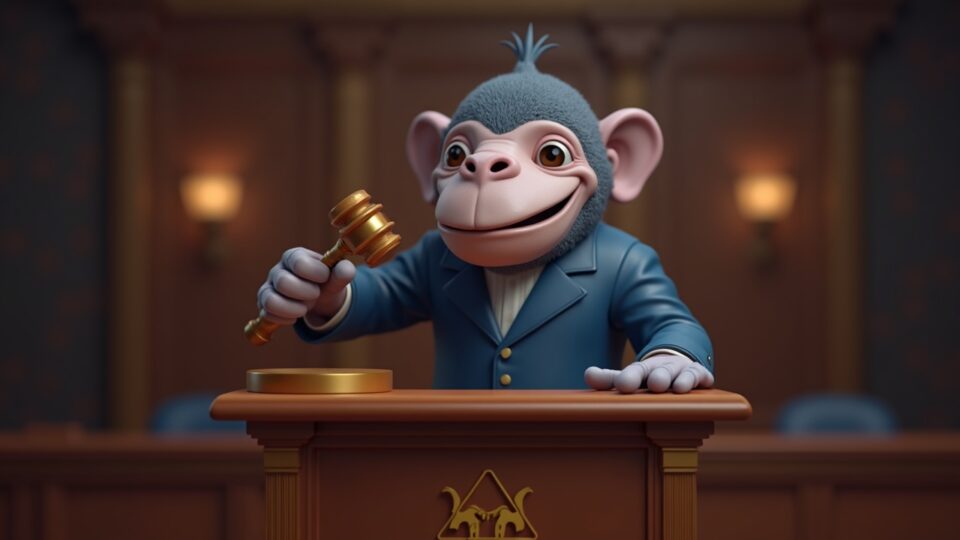A federal court in California has issued a landmark verdict for the NFT market that could set a significant precedent. Judge Fernando M. Olguin ruled this week that tokens from the famous Bored Ape Yacht Club are not securities, thereby dismissing a class-action lawsuit filed against its creator company, Yuga Labs. This judicial decision provides one of the most definitive legal clarifications to date on the nature of high-profile digital collectibles.
The foundation of Judge Olguin’s ruling lies in a detailed analysis of the “Howey Test,” the standard used to determine if a transaction qualifies as an investment contract. The judge concluded that the sale of BAYC NFTs did not meet the “common enterprise” criterion, marking a fundamental difference from other cases. Unlike collections such as NBA Top Shot, the Bored Apes were acquired by the plaintiffs on third-party secondary markets, like OpenSea, and not on a platform directly controlled by Yuga Labs, which breaks the direct link between the investor’s fortune and the issuer’s.
Keys to the Verdict: Why is BAYC Not a Security?
The judge’s reasoning went even deeper when analyzing the royalty system. Olguin noted that Yuga Labs’ collection of a royalty on each resale suggests “a disassociation between the fortunes of [the plaintiffs] and those of the defendants.”
This is because Yuga Labs would profit even if the owners sold their NFTs at a loss, which contradicts the idea of a shared financial fate. Interestingly, this logic opposes the SEC’s stance, which had previously argued that royalties were an indication that an asset was indeed a security. Therefore, a court ruling is more decisive than a regulatory investigation.
This verdict comes after the SEC itself closed an investigation into Yuga Labs earlier this year without taking enforcement action, a decision the company celebrated as a victory. However, a federal court ruling carries much greater legal weight. It establishes a precedent that other companies in the sector can cite in their defense and offers a clearer analytical framework for a digital economy that is desperately seeking legal certainty.
Market Reaction and Regulatory Future
Despite the significance of the news, the market’s reaction was surprisingly subdued. Following the ruling, the floor price barely reacted; in fact, it registered a slight drop of 2%, settling at approximately $37,337. This price behavior, which represents a 90% decrease from its all-time high in April 2022, suggests that the market had either already priced in this outcome or that overall confidence in the NFT sector remains fragile. The confirmation that Bored Ape Yacht Club are not securities was not enough to spur a significant recovery.
This ruling represents a crucial legal victory for Yuga Labs and for a segment of the NFT industry. Judge Olguin’s decision sets an important legal precedent, especially concerning the sale of collectibles on decentralized marketplaces and the treatment of creator royalties.
While it is not a free pass for all NFT projects, it does draw a clearer line in the regulatory debate, demonstrating that not all digital assets can or should be treated under the same legal umbrella as traditional securities. The industry will now watch how this judicial logic influences future cases and the stance of regulators.

